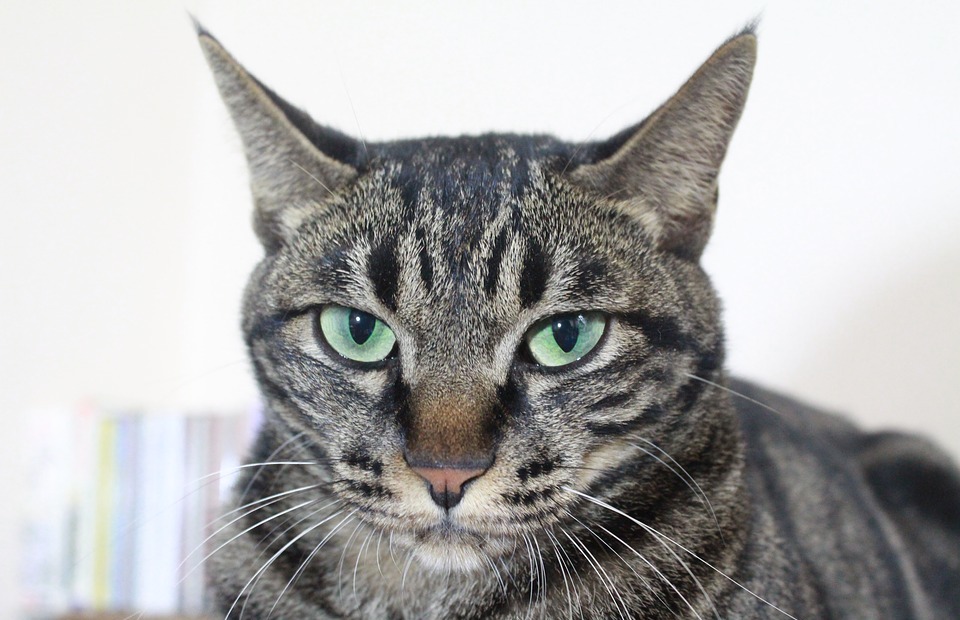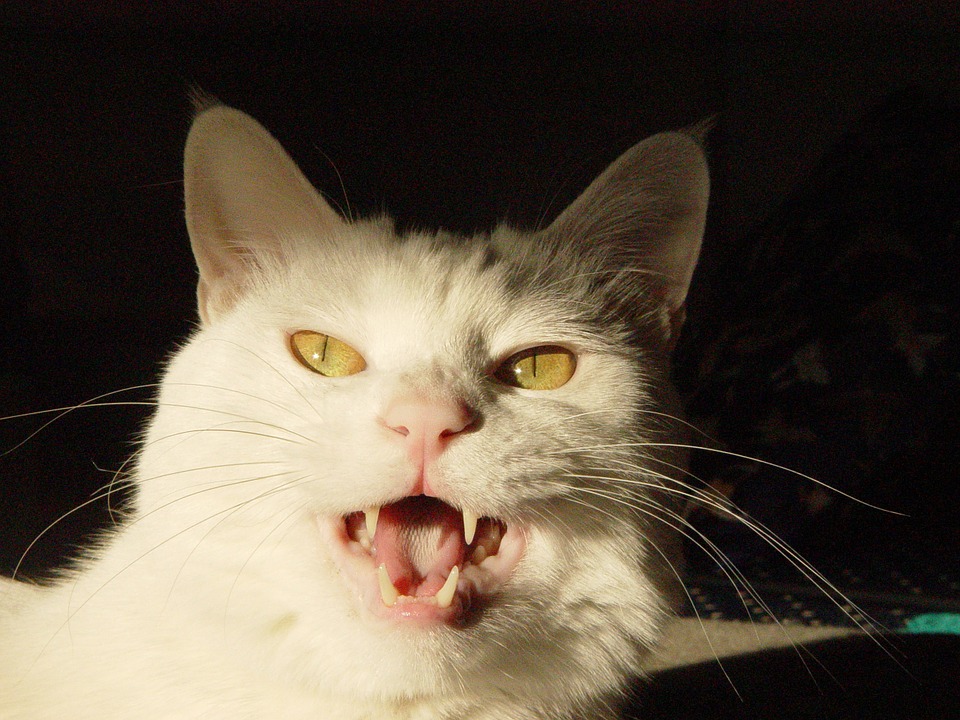Cats are renowned for their mysterious ways, often baffling their human companions with their peculiar behaviours. One such intriguing phenomenon that often sparks curiosity among cat owners is the occurrence of hiccups. This article delves into the fascinating world of feline hiccups, exploring their causes, symptoms, potential remedies, and the surprisingly nuanced debate surrounding this seemingly simple phenomenon. Join us on this journey to uncover the truth behind these curious episodes.
Part 1: Deciphering the Enigma of Hiccups

1.1 Unveiling the Hiccup Mechanism
Hiccups, those involuntary muscle spasms that disrupt our peaceful moments, have a simple yet fascinating origin. They are caused by sudden, uncontrolled contractions of the diaphragm, the large muscle separating the chest and abdomen. This contraction forces air into the lungs, creating the distinctive "hic" sound.
1.2 The Nerve-Signalling Mishap
The root of the hiccup lies in a communication breakdown between the brain and the diaphragm. The brain, for reasons not always fully understood, sends an erroneous signal to the diaphragm, triggering its sudden contraction. This miscommunication is the driving force behind the hiccup phenomenon.
1.3 A Universal Human Experience
Hiccups are a common human experience, affecting individuals of all ages, genders, and backgrounds. We all know that uncomfortable feeling of repeated spasms, often accompanied by a sense of annoyance or embarrassment. But what about our feline companions? Do they share this universal experience?
Part 2: The Feline Hiccup Conundrum

2.1 The Anecdotal Evidence
While there is no comprehensive scientific research on hiccups in cats, a significant amount of anecdotal evidence suggests they do occur. Countless cat owners have witnessed their furry companions exhibiting hiccup-like symptoms, characterized by rapid, rhythmic inhalations. These observations have sparked countless online discussions and fuelled the debate on the existence of feline hiccups.
2.2 The Anatomical Distinction
Some experts argue that true hiccups in cats are rare, citing the anatomical differences between cats and humans. Cats lack the same vocal cords as humans, making it challenging for them to produce the distinctive "hic" sound associated with human hiccups. They propose that the rhythmic inhalations observed in cats may be attributed to other causes.
2.3 Alternative Explanations
While the absence of the distinctive "hic" sound might fuel skepticism, several potential explanations for the rhythmic inhalations observed in cats exist:
- Respiratory Distress: Cats experiencing respiratory problems, like asthma or pneumonia, may exhibit rapid breathing patterns that can be mistaken for hiccups.
- Burping: Cats are prone to burping, particularly after meals, and the sound can resemble a hiccup, especially to an untrained ear.
- Anxiety or Stress: Cats, like humans, can experience anxiety and stress, manifesting as rapid breathing. This rapid breathing, although not a true hiccup, can appear similar to the symptom.
Part 3: Deciphering the Symptoms
3.1 Recognizing the Tell-Tale Signs
While the "hic" sound may not be as evident in cats, other tell-tale signs can indicate the presence of hiccups:
- Rapid, Rhythmic Inhalations: The most noticeable symptom is a series of quick, repetitive breaths, often with a characteristic "sucking-in" motion.
- Slight Head Bobbing: The cat's head may bob slightly with each inhalation, as if they are struggling to catch their breath.
- Gagging or Retching: Some cats may exhibit gagging or retching as they try to expel air, further mimicking the human hiccup experience.
3.2 Differentiating Hiccups from Other Conditions
It is crucial to distinguish hiccups from other conditions that can cause similar symptoms. This is where careful observation and veterinary expertise are essential:
- Respiratory Problems: Respiratory issues like asthma or pneumonia can cause rapid breathing and difficulty breathing, often appearing similar to hiccups.
- Gastrointestinal Problems: Conditions such as gastritis or a hairball can lead to gagging or retching, mimicking some of the symptoms of hiccups.
Part 4: Exploring Potential Triggers
4.1 Common Hiccup Culprits
While the exact causes of hiccups in cats remain a subject of debate, several potential triggers have been observed:
- Eating Too Quickly: Just like humans, cats can get hiccups if they eat too fast, particularly if they gulp down their food, leading to a sudden influx of air into the digestive system.
- Stress or Excitement: Cats experiencing stress or excitement, such as during playtime or after a visit to the vet, may develop hiccups due to the release of adrenaline and other stress hormones.
- Gastrointestinal Upset: Changes in diet, allergies, or parasites can affect a cat's digestive system, leading to hiccups as a possible symptom.
4.2 Less Common Triggers
While less common, other factors may also contribute to hiccups in cats:
- Medications: Certain medications, particularly those affecting the nervous system, can have side effects that include hiccups.
- Dehydration: Dehydration, a common health issue in cats, can lead to a variety of complications, including hiccups.
Part 5: Treating the Hiccups
5.1 When to Seek Veterinary Care
If your cat is experiencing persistent or severe hiccups, it's crucial to consult a veterinarian. Hiccups can be a symptom of underlying health conditions, and prompt diagnosis and treatment are essential for your cat's well-being.
5.2 Home Remedies for Occasional Hiccups
For occasional hiccups, these home remedies may provide some relief:
- Offer Water: Hydration can help soothe the diaphragm and alleviate hiccups. Ensure your cat has access to fresh water throughout the day.
- Calming Techniques: Create a calm and comfortable environment for your cat. This can help reduce stress-induced hiccups, especially if your cat is prone to anxiety.
- Avoid Feeding for a While: Give your cat a short break from eating to allow their digestive system to settle. This can be especially helpful if the hiccups are triggered by eating too quickly.
5.3 Important Note
Remember, home remedies may not always be effective. If your cat's hiccups are persistent or accompanied by other symptoms, it's crucial to seek professional advice from your veterinarian.
Part 6: Preventive Measures
6.1 Promoting Healthy Eating Habits
Encouraging your cat to eat slowly can help prevent hiccups. Consider using slow-feed bowls or puzzle feeders that require your cat to work for their food. This can help prevent them from gulping down their meals, a common trigger for hiccups.
6.2 Managing Stress and Anxiety
Creating a calm and stimulating environment can help reduce stress in your cat. Provide plenty of toys, scratching posts, and climbing opportunities to keep them entertained and engaged. A happy and content cat is less likely to experience stress-induced hiccups.
6.3 Regular Veterinary Checkups
Regular veterinary checkups are crucial for identifying any underlying health issues that may contribute to hiccups. Early detection of any health concerns can lead to timely intervention and prevent complications.
Part 7: The Quest for Knowledge
7.1 The Need for Further Research
More research is needed to understand the causes and prevalence of hiccups in cats. Further studies could provide valuable insights into this phenomenon and lead to better diagnostic and treatment methods, helping us provide better care for our feline companions.
7.2 Potential Research Directions
Future research could focus on:
- Observational Studies: Observing cats under controlled conditions to monitor the incidence of hiccups and identify potential triggers.
- Physiological Studies: Investigating the physiological mechanisms underlying feline hiccups to gain a deeper understanding of the process.
- Clinical Trials: Evaluating the effectiveness of different treatment options for hiccups in cats to determine which approaches are most effective.
Part 8: FAQs
8.1 How Long Do Hiccups Last in Cats?
Hiccups in cats typically last for a short period, usually only a few minutes. However, if they persist for an extended time, it's essential to consult a veterinarian as this could indicate an underlying health issue.
8.2 Can I Give My Cat Medication for Hiccups?
Do not administer any medications to your cat without first consulting a veterinarian. Some medications can be harmful to cats, and it's crucial to ensure any treatment is safe and appropriate for your pet.
8.3 Are Hiccups Harmful to Cats?
In most cases, hiccups in cats are not harmful and do not require any treatment. However, if they persist or are accompanied by other symptoms, it's important to seek veterinary care as this could be a sign of a more serious condition.
8.4 Can I Prevent Hiccups in My Cat?
While you cannot completely prevent hiccups in cats, promoting healthy eating habits, managing stress, and providing regular veterinary care can help reduce the risk.
8.5 Why Do Cats Hiccup?
The exact causes of hiccups in cats are not fully understood, but they are believed to be related to the same mechanisms that cause hiccups in humans. These mechanisms involve disruptions in the communication between the brain and the diaphragm.
8.6 Should I Be Concerned About My Cat's Hiccups?
If your cat's hiccups are infrequent and resolve quickly, there's usually no need for concern. However, if they are persistent, severe, or accompanied by other symptoms, it's essential to consult a veterinarian for a proper diagnosis and treatment plan.
Everyone is watching
-

Are Cat Ribs Flexible? Understanding Their Anatomy
CATS & KITTENSThis article delves into the fascinating world of feline anatomy, exploring the flexibility of cat ribs and ho...
-

Can Cats Eat Bananas? (Everything You Need to Know)
CATS & KITTENSThis article dives into the intriguing question of whether cats can safely enjoy the sweet, yellow fruit, bana...
-

Cat Lifespan: How Long Do Cats Live?
CATS & KITTENSThis comprehensive guide explores the factors influencing the lifespan of our feline companions, providing ins...
-

Can Cats Get COVID-19? What You Need to Know
CATS & KITTENSThis article will delve into the fascinating world of feline COVID-19 susceptibility. We'll explore whether ca...
-

Can Cats Eat Eggs? A Complete Guide to Egg Safety for Your Feline Friend
CATS & KITTENSWhen it comes to treating our furry companions, we all want to ensure we're doing what's best for them. Eggs...
